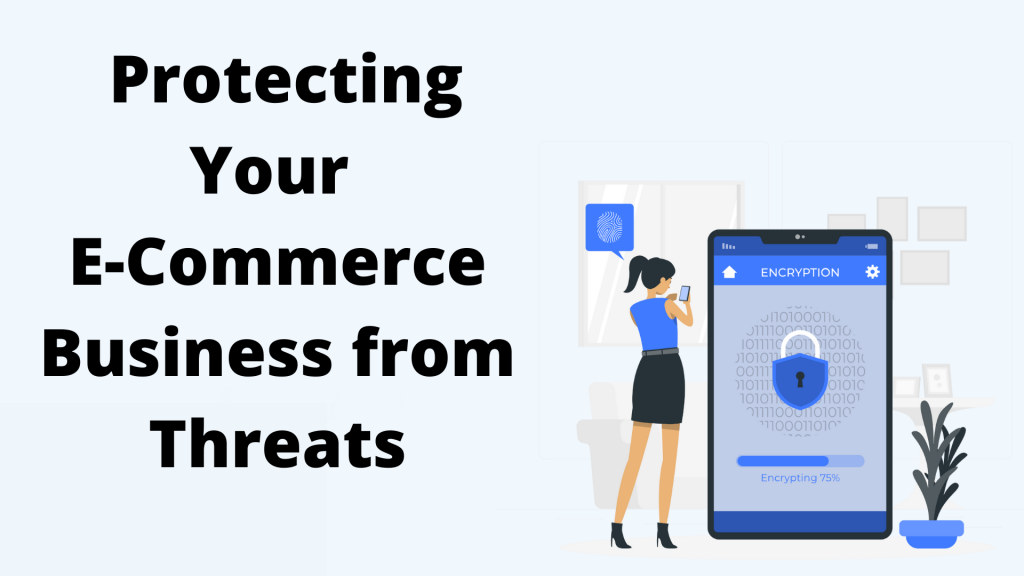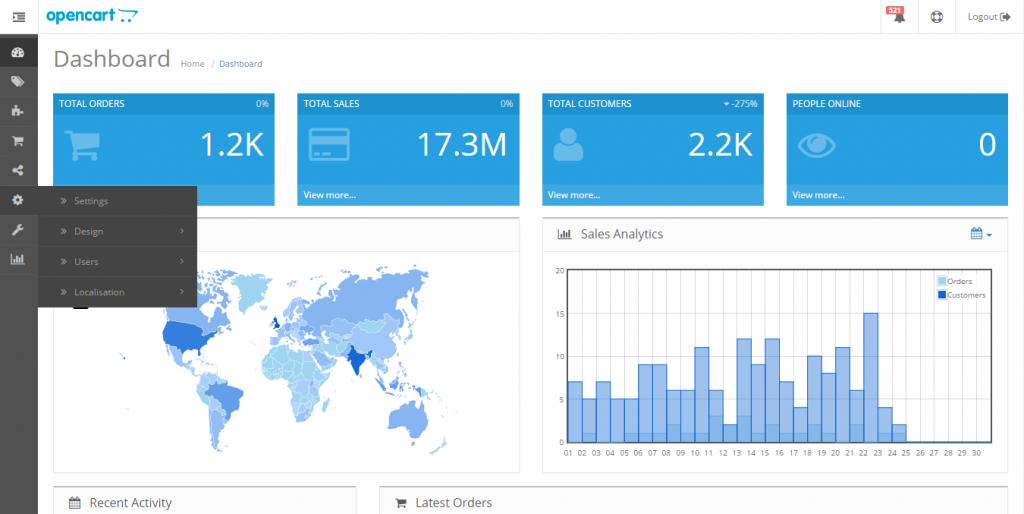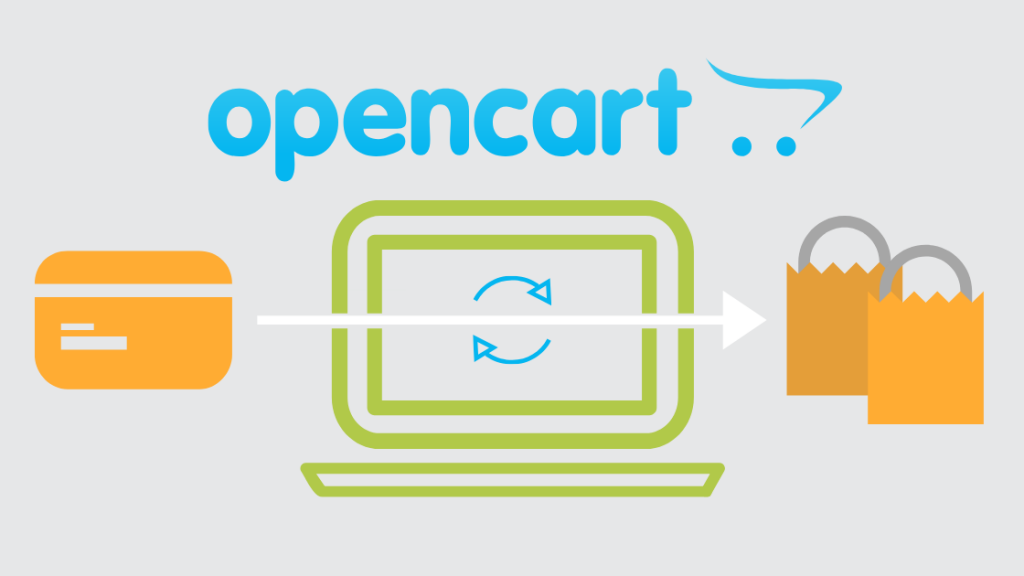
OpenCart is an open-source ecommerce platform that allows businesses to create and manage their online stores. With its user-friendly interface and extensive range of features, OpenCart provides a simple and effective way for businesses to sell products and services online. From customizing the design and layout of the online store to managing inventory and processing payments, OpenCart offers a comprehensive solution for online businesses. However, with the rise in cyber threats and security risks, it is essential for e-commerce businesses to prioritize the security of their online stores. In this article, we will explore the importance of OpenCart security and the measures businesses can take to protect their e-commerce business from various threats.
Benefits of Using OpenCart for Online Stores
OpenCart is an excellent choice for online businesses due to its advanced security features that protect e-commerce websites from potential threats. By using OpenCart as your chosen platform, you can ensure the safety and security of your sensitive customer data, online transactions, and login credentials. One of the key benefits of OpenCart is its ability to stay updated with the latest security patches and updates. OpenCart regularly releases security updates to address any vulnerabilities that may arise. Upgrading to the latest version ensures that your online store is protected from emerging security risks. OpenCart also offers a fraud detection feature, which adds an additional layer of security to your e-commerce business. Enabling this feature helps in identifying and preventing fraudulent activities and unauthorized transactions, ensuring the security of your customer's credit card details. In addition to these advanced security measures, OpenCart supports two-factor authentication, which adds an extra level of protection to your admin panel and prevents unauthorized access to your e-commerce platform. By using strong passwords and avoiding default login credentials, you can further enhance the security of your online store. To ensure that your OpenCart site is secure, regular security audits and scans using scanning tools are recommended. These measures help to identify and mitigate any potential security breaches or malicious code. Import Template By choosing OpenCart for your e-commerce platform, you can establish a high level of customer trust and loyalty. Protecting your online store from cyber threats and securing your customer's sensitive information is crucial in today's digital world, and OpenCart provides the necessary security features to achieve this.
Common Threats to Consider
When running an e-commerce business, it is crucial to be aware of the common threats that can compromise the security of your online store. Cyber threats such as data breaches, malware attacks, and fraudulent activities pose significant risks to sensitive customer information and online transactions. Hackers can exploit vulnerabilities in your website's code, use cross-site scripting techniques, or attempt to steal credit card details. Additionally, the sheer volume of incoming traffic to e-commerce websites makes them attractive targets for criminals. Therefore, it is essential to implement robust security measures and stay vigilant against potential security issues. By understanding the common threats and taking proactive steps to protect your e-commerce business, you can foster customer trust, loyalty, and ensure the long-term success of your online venture.
Malicious Code Injection
Malicious code injection is a significant threat to OpenCart security that e-commerce businesses need to be aware of and protect against. This form of attack involves criminal hackers exploiting vulnerabilities in the backend coding of the website, such as OpenCart, to inject malicious commands or scripts. By injecting this malicious code, hackers can gain unauthorized access to sensitive customer data and credit card details, as well as manipulate the website's functionalities for their malicious intent. This can include stealing login credentials, executing fraudulent transactions, or even causing a complete shutdown of the website. To protect against malicious code injection, it is crucial to regularly monitor the website for any suspicious activity. This can be done by implementing specialized monitoring software that can detect and prevent fraudulent transactions in real-time. Additionally, conducting security audits and applying security patches and updates to the OpenCart platform can close any vulnerabilities that hackers may exploit. By taking these measures and staying proactive in OpenCart security, e-commerce businesses can create an additional layer of protection for themselves and their customers, ensuring that sensitive customer data remains secure and trusted.

Cross-Site Scripting (XSS) Attacks
Cross-Site Scripting (XSS) attacks pose a significant threat to OpenCart websites and can have severe consequences for eCommerce businesses and their customers. Hackers exploit vulnerabilities in the website's code to inject malicious scripts that can gain unauthorized access and manipulate the site's content. By successfully executing an XSS attack, hackers can steal sensitive customer information, such as login credentials and credit card details. They can also manipulate the website's functionalities, redirect users to malicious websites, or even deface the site. This can lead to financial losses for the business, erode customer trust, and damage the reputation of the eCommerce brand. To prevent and mitigate XSS attacks, implementing a Content Security Policy (CSP) is crucial. A CSP helps block the execution of unauthorized scripts and restricts the types of content that can be loaded on a website. Regularly updating and patching OpenCart installations is also vital to close any vulnerabilities that hackers might exploit. Additionally, conducting security audits and employing real-time scanning tools can detect and prevent XSS attacks. Training employees on secure coding practices, enforcing strong passwords, and practicing regular backups can also add an extra layer of security. By prioritizing security measures and keeping abreast of emerging threats, eCommerce businesses can effectively protect their OpenCart websites against XSS attacks and ensure the safety of their customers' sensitive information.
Accessing Sensitive Customer Data and Login Credentials
Hackers employ various methods to access sensitive customer data and login credentials, posing a significant threat to e-commerce businesses. One common method is through phishing attacks, where hackers create fake emails or websites that mimic legitimate ones to trick users into revealing their personal information. Another method is through brute force attacks, where hackers use automated tools to guess passwords until they gain unauthorized access. Additionally, hackers can exploit vulnerabilities in the website's code or server to gain unauthorized access. To protect sensitive customer data and login credentials, it is crucial for businesses to implement strong authentication measures. Two-factor authentication, for example, adds an extra layer of security by requiring users to provide a second piece of information, such as a code sent to their mobile device, in addition to their password. Educating employees about cybersecurity best practices is essential to prevent data breaches. This includes training them on how to recognize and avoid phishing attacks, the importance of using strong and unique passwords, and the risks of sharing login credentials. Securing customer data through encryption techniques is another effective measure. Encrypting data means converting it into a code that can only be accessed with a decryption key, making it unreadable to unauthorized individuals. Adhering to industry-standard security frameworks, such as the Payment Card Industry Data Security Standard (PCI DSS), helps ensure that businesses have robust security measures in place to protect customer data and login credentials. By implementing strong authentication, educating employees, using encryption techniques, and following industry-standard security frameworks, e-commerce businesses can significantly reduce the risk of unauthorized access to sensitive customer data and login credentials.
Credit Card Fraud and Illegal Transactions
Credit card fraud and illegal transactions pose significant risks to e-commerce businesses and customers alike. These criminal activities can result in substantial financial losses and reputational damage. Credit card fraud occurs when unauthorized individuals gain access to sensitive customer information, such as credit card numbers, and use it to make fraudulent purchases. This not only leads to financial losses for the affected businesses but also leaves customers vulnerable to identity theft and financial harm. Illegal transactions in e-commerce involve the sale of counterfeit or illegal goods and services. These transactions not only violate laws and regulations but also expose customers to substandard or harmful products. Businesses caught facilitating such transactions can face severe legal consequences and damage to their brand reputation. The financial losses incurred in credit card fraud and illegal transactions can be substantial. Businesses may have to refund fraudulent transactions, absorb chargeback fees, and invest in legal representation. Moreover, customers who fall victim to these activities may suffer financial hardship, damage to their credit scores, and emotional distress. Reputational damage is another serious consequence. Businesses that fail to protect customer data may lose the trust and loyalty of their customers, leading to decreased sales and negative publicity. To mitigate these risks, businesses must implement advanced security measures, such as two-factor authentication, encryption techniques, and regular security audits. Additionally, using fraud detection and prevention tools, as well as adhering to industrystandard security frameworks, can help strengthen e-commerce security and safeguard against credit card fraud and illegal transactions.
Security Measures Needed to Protect Your OpenCart Store from Cyber Threats
As an e-commerce business owner, it is crucial to prioritize the security of your OpenCart store to protect it from cyber threats. With the increasing frequency and sophistication of cyber attacks, businesses need to implement effective security measures to safeguard sensitive customer information, prevent financial losses, and maintain customer trust. In this article, we will explore the security measures you can take to protect your OpenCart store from potential threats. From implementing security patches and two-factor authentication to conducting regular security audits and employing advanced security features, adopting these measures will strengthen the security of your e-commerce business and provide a layer of protection against malicious activities. By taking proactive measures, you can ensure the safety of your customers' data, maintain your brand reputation, and build a secure and thriving online business.

Installing Security Patches and Updates Regularly
Installing security patches and updates regularly is crucial for the security of an OpenCart e-commerce business. OpenCart regularly releases security patches and updates to address vulnerabilities and protect the platform from threats. These patches often include fixes for known security issues, removal of malicious code, and implementation of advanced security measures. By regularly installing these patches and updates, online store owners can ensure their platform remains secure and protected against cyber threats. Failure to do so can leave the website vulnerable to attacks, compromising sensitive customer and transaction data. Staying up-to-date with OpenCart updates is essential to mitigate security risks. Installations of security patches and updates help to strengthen the platform's overall security, providing an extra layer of protection against potential breaches. In conclusion, regularly installing security patches and updates for OpenCart is critical for safeguarding e-commerce businesses. It helps to ensure the platform is equipped with the latest security measures, providing a secure environment for online transactions and fostering customer trust and loyalty.
Implementing Two-Factor Authentication for Admin Panel Access
Implementing two-factor authentication for admin panel access in OpenCart is a crucial step towards strengthening the security of your e-commerce business. Two-factor authentication adds an extra layer of security to prevent unauthorized access, even if someone manages to obtain your login credentials. To enable two-factor authentication in OpenCart, follow these steps:
- Configure the settings: Login to your OpenCart admin panel and navigate to the "System" tab. From there, go to "Users" and click on "User Groups". Select the admin user group and edit the group. Under the "Access Permission" tab, enable the "2FA" option.
- Register a mobile device: Once the 2FA option is enabled, it's time to register your mobile device. Under the "System" tab, go to "Users" and select "2FA Devices". Click on "Add New" and follow the instructions to register your mobile device.
- Verify login with a unique code: After registering your mobile device, a unique code will be generated. Whenever you log in to the admin panel, OpenCart will prompt you to enter this code, which will be sent to your registered mobile device. Enter the code to verify the login and gain access to the admin panel.
Implementing two-factor authentication in OpenCart adds a valuable layer of security that significantly reduces the risk of unauthorized access. By following these steps, you can enhance the security of your e-commerce business and protect it from potential security breaches.
Utilizing Fraud Detection Methods such as IP Address Blocking and Captcha Verification
Utilizing fraud detection methods such as IP address blocking and Captcha verification in OpenCart can provide an additional layer of security for your e-commerce business. These features help protect your store from fraudulent activities and ensure the safety of your customers' sensitive information. Here's how you can enable these features in OpenCart's admin panel:
- Access the fraud detection feature: Log in to your OpenCart admin panel and navigate to the "Extensions" menu. Click on "Fraud" from the dropdown list. From here, you can manage fraud detection settings and install anti-fraud extensions.
- Install an anti-fraud extension: To enhance fraud detection capabilities, you can install an anti-fraud extension. Browse the OpenCart marketplace or a trusted third-party extension provider to find a suitable anti-fraud extension for your business. Download the extension and follow the installation instructions provided.
- Enable IP address blocking: In the fraud detection settings, look for the IP address blocking option. Enable this feature to restrict access to your store from specified IP addresses associated with fraudulent activities. You can manually input suspicious IP addresses or import them from external sources.
- Set up Captcha verification: Captcha verification adds an extra layer of security by requiring users to complete a challenge to prove they are human. In the fraud detection settings, find the Captcha verification option and enable it. Choose the appropriate Captcha type and customize the settings to strike a balance between user experience and security.
By implementing these fraud detection methods, you can effectively safeguard your OpenCart store and ensure a secure environment for your online business.
Ensuring Secure Hosting Plans with Quality Service Providers
Ensuring secure hosting plans is crucial for the protection of your OpenCart store from potential threats and vulnerabilities. Opting for a reliable and secure hosting provider can significantly reduce the risk of security breaches and ensure the safety of your sensitive customer data. Shared hosting services, although cost-effective, can pose security risks due to the sharing of server resources with other websites. If one website on the shared server is compromised, it can affect the security of all the websites hosted on that server. Therefore, it is important to choose a hosting provider that implements strong security measures and regularly updates and patches their systems. VPS hosting offers more security compared to shared hosting, but outdated panels can still be vulnerable to attacks. It is essential to select a hosting provider that offers up-todate and secure panels to protect your OpenCart store from potential exploitation. Cloud hosting is an excellent option for e-commerce businesses as it provides scalability, flexibility, and built-in security features. With cloud hosting, you can easily scale your resources based on your business needs, adding an extra layer of security as the hosting provider takes responsibility for managing and maintaining the infrastructure. Cloud hosting also offers features like Identity and Access Management (IAM), which allows you to control and manage user access to your store, increasing security. Compliance with regulatory standards like the Payment Card Industry Data Security Standard (PCI DSS) is crucial for online businesses. Ensure that your hosting provider is compliant with these standards, as it sets requirements for secure handling of credit card information, reducing the risk of data breaches. When selecting a hosting provider, prioritize security, reliability, and adherence to necessary regulatory standards to ensure the safe and smooth operation of your OpenCart store.

Conducting Periodic Security Audits and Vulnerability Scans
Conducting periodic security audits and vulnerability scans for your OpenCart website is of utmost importance in today's cyber-threat landscape. These audits and scans serve as vital tools to assess the security flaws of your website and stay one step ahead of potential cyber threats. By conducting regular security audits, you can identify any vulnerabilities or weaknesses in your OpenCart website's security infrastructure. This includes checking for outdated software versions, weak passwords, improper access controls, and other potential entry points for malicious attacks. By proactively addressing these vulnerabilities, you can significantly minimize the risk of a security breach. Vulnerability scans, on the other hand, involve using specialized tools to scan your website for known security vulnerabilities. These scans provide insights into any weak points in your website's code, configurations, or data storage. By identifying these vulnerabilities early on, you can take the necessary steps to fix them and prevent potential cyber attacks. The benefits of conducting periodic security audits and vulnerability scans are manifold. By detecting and addressing vulnerabilities before real attacks occur, you can safeguard your OpenCart website and protect the sensitive customer information it handles. This not only helps you maintain the trust and loyalty of your customers but also mitigates the financial and reputational damages that could result from a security breach. In conclusion, periodic security audits and vulnerability scans are crucial for OpenCart websites. By assessing security flaws, staying ahead of potential cyber threats, and addressing vulnerabilities proactively, you can ensure the optimal security of your ecommerce business and maintain a strong foundation for growth and success.
Conclusion
In conclusion, maintaining cyber security for your E-Commerce business is of utmost importance to protect customer data and ensure the smooth operation of your OpenCart store. By conducting regular security audits and vulnerability scans, you can proactively identify and address potential vulnerabilities in your website's security infrastructure. This includes checking for outdated software versions, weak passwords, improper access controls, and other potential entry points for malicious attacks. Taking secure measures such as implementing two-factor authentication, using strong and unique passwords, and regularly updating your OpenCart software with the latest security patches can significantly enhance your website's security. Additionally, investing in advanced security measures like fraud detection systems and multi-factor authentication can provide an extra layer of security for your online transactions and sensitive customer information. By implementing these security measures, you can protect your customers' trust and loyalty by ensuring their personal information, such as credit card details, is safeguarded from cyber attacks. Furthermore, taking proactive steps to secure your OpenCart store can help mitigate the financial and reputational damages that could arise from a potential security breach. In conclusion, prioritizing e-commerce security by implementing these measures will not only safeguard your online business but also strengthen customer trust and loyalty in your OpenCart store.
 OpenCart is an open-source ecommerce platform that allows businesses to create and manage their online stores. With its user-friendly interface and extensive range of features, OpenCart provides a simple and effective way for businesses to sell products and services online. From customizing the design and layout of the online store to managing inventory and processing payments, OpenCart offers a comprehensive solution for online businesses. However, with the rise in cyber threats and security risks, it is essential for e-commerce businesses to prioritize the security of their online stores. In this article, we will explore the importance of OpenCart security and the measures businesses can take to protect their e-commerce business from various threats.
OpenCart is an open-source ecommerce platform that allows businesses to create and manage their online stores. With its user-friendly interface and extensive range of features, OpenCart provides a simple and effective way for businesses to sell products and services online. From customizing the design and layout of the online store to managing inventory and processing payments, OpenCart offers a comprehensive solution for online businesses. However, with the rise in cyber threats and security risks, it is essential for e-commerce businesses to prioritize the security of their online stores. In this article, we will explore the importance of OpenCart security and the measures businesses can take to protect their e-commerce business from various threats.





